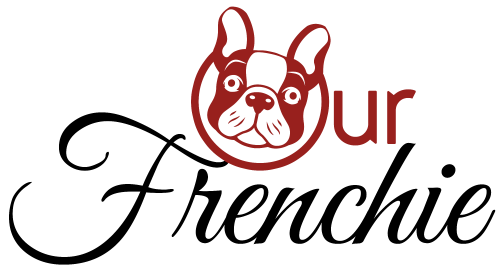Health & Care
Causes and Treatments of French Bulldog Paralysis
Page Contents
Paralysis in animals can sometimes lead to complete immobility, while in other cases, the dog’s paralysis may be partial. This publication is based on the views of our readers. To make you understand that we value your comments or email responses, we appreciate them every time you join us. That said, I will describe a Real-Life incident that can help set the stage for the rest of this work. This is a discussion with a veterinarian about his French bulldog being unexpectedly paralyzed between a French mother, Allison.
Interview
Allison: “I woke up at 6 a.m. and my French Bulldog was suddenly paralyzed in my hind legs. I noticed she’d slip sometimes during about 3 months. She was active and normal until that morning, but she won’t drink, but will eat a treat. She urinated and defecated this morning at 6:30, yet she hasn’t been here.
Dr. Justin: “Thank you for all your questions. Let me ask you a few questions, so I can help you. 1. Does she really pinch her ankles and hurt her pain? Does she draw back her arm? Does she twist her neck, groan and whin, like it hurts? Does that for both back feet.”
Allison: “She might be pinching me, she slightly drew her leg back ….. but, when I get her up, she won’t right her flat paw when I bend her foot under.”
Dr Justin:”Thanks for the data. It is nice that she still has pain in her back feet ; most probably, she has a disk which has prolapsed and puts stress on her backbone. I would advise you to bring her straight to the emergency doctor, they could bring an x-ray to verify the diagnosis and begin the treatment on suitable medications.
Allison: “If it is a prolapsed disc … how would her future be? Well, I operate from home and can offer any kind of care. But, ironically … my 130 pounds American Bulldog had surgery just to take a Nylabone, it just cost me $ 7,000 for operation over a lifetime, but it has cost me $ 13,000.
Dr. Justin: “Where there have been no continuous harm to her spinal cord, she should begin walking again when the swelling has decreased. However, she may always have some neurological deficiency in hind limbs. To what extent is it difficult to forecast, however if there is continuous harm she may never again be willing to walk.
It was a terrible adventure for Allison, we agree. Furthermore, we have to acknowledge that she wasn’t alone in her globe, there are lots of Frenchie Moms and Dads who had to go through difficult times like her. If you haven’t had this, you should therefore catch up with some critical information about French Bulldog paralysis. Dog paralysis is a scary thing, there are loads of stuff that you can do to accommodate if things go south. Check out a small number of preventive measures to save your Frenchie.
You need to understand 3 different kinds of dog paralysis:
- Tetraplegia: this is the worst type of French Bulldog Paralysis, in fact. Tetraplegia causes one of its four limbs to be totally unable to relocate.
- Paraplegia: This sort of paralysis leads the dog to be incapable of moving his feet.
- Paresis: is a type of Dog Paralysis that produces restricted dog motion. Paresis still permits the ability to move, but it is very difficult. The uncomfortable motion creates suffering.
A French Bulldog proprietor would create among the worst errors by ignored indications of dog paralysis before it develops into an emergency.
Most common signs of paralysis in the French bulldog:
- Refusing to sit or push their feet.
- Dragging the hind legs and walking on the front legs.
- Facing difficulties in moving. Unusual pain in the throat, back or feet.
- Inability to regulate the movements of urination or bowel movements.
- There may be signs of constipation.
Of course, some of these symptoms are things that you may never know of if you don’t regularly check your frenchie. For example, you can readily recognize a pain point by practicing with your French Bulldog. Having said that, we think avoidance is better than remedy. Therefore, if you knew what causes paralysis in French Bulldogs, you may have more chance that your Franchise didn’t come first.
French Bulldog Paralysis Causes
Paralysis in French Bulldogs may be due to apparent variables like your Frenchie being engaged in an incident with fractures in his bones that prevent him from walking. Other occasions, however, some causes of dog paralysis may not be physical, as when unexpectedly happened, she woke up one morning, and encountered her Frenchie totally paralyzed, like Allison above.
Let’s look at some of French Bulldog Paralysis ‘ medical and environmental triggers.
Tick Bites: That could be a shocker for you; how could a cow be paralyzed in Tick Bites? Research demonstrates, unfortunately, that Tick Bites is one of the most prevalent and indeed the most important cause of dog paralysis.
Neurotoxins are one of the damaging materials Ticks inject into dogs through teeth. Neurotoxins are a large category of exogenous neurological chemical insults that can adversely influence both growing and mature nervous tissues. When the ticks touch your Frenchie, they inject this damaging substance into the dog’s bloodstream that causes neuronal paralysis that impacts the brain’s nervous system communication. Neuronal paralysis is the most abrupt paralysis in animals and can spread and become deadly if left unattended to the paralysis.
Conclusion
So, you must create it a responsibility to protect your pet from ticks. Look for indications that demonstrate that your dog is ticked. Signs like coordination loss and vomiting. If you noticed a sudden shift of sound and bark quality, this is a nice indication that a tick bit your Frenchie. You might be interested to read this paper, on the French bulldogs and ticks question, in order to gain a deeper understanding, because the effects of Tick Bites are generally not immediate, in most instances it can take six to nine months after the bite to begin to deal with your pet. Stay secure!

